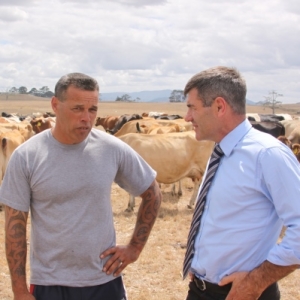PRIMARY INDUSTRIES Minister Nathan Guy says rural communities have bounced back strongly after this year's drought, with the official declaration ending today (September 30).
"Earlier this year I extended the official drought declaration covering the entire North Island and West Coast of the South Island until the end of September," This was in recognition that the drought was the worst in 70 years and the need for support would continue through the winter.
"Fortunately we have had an excellent winter with warm temperatures and decent rainfall. This has meant very good growing conditions for most farmers across the country.
"This shows the resilience of rural communities who have come through earthquakes, snow storms, and drought over the last few years. With every challenge farmers have rebounded and come back even stronger."
A total of 146 applications for Rural Assistance Payments have been granted this year with $814,277.32 in assistance paid. These are paid at an equivalent rate to the unemployment benefit and were available to those in extreme hardship.
"This shows that farmers are not interested in handouts unless absolutely necessary. What's more important to them is knowing the Government has acknowledged their situation and is providing back-up support."
A total of $320,000 in funding has also been made available to Rural Support Trusts who have worked closely with farmers, providing support and guidance.
"I want to thank everyone who banded together to help rural communities in their time of need, including the Ministry for Primary Industries, Work and Income, Rural Support Trusts, IRD, Federated Farmers, Rural Women, the NZ Veterinary Association, Beef + Lamb NZ, Dairy NZ and many banks who offered special packages.
"The drought has also shown the importance of irrigation and water storage. We don't have a shortage of rainfall in this country, we just don't have enough capacity to store and use that water in dry times.
"We currently store less than 2% of the water that lands on New Zealand. This is why the Government is investing $80 million this year into Crown Irrigation Investments Ltd to act as a bridging investor for irrigation projects. In total, the Government has signalled plans to invest up to $400 million in regional-scale schemes.
"Done properly, regional projects can allocate water to benefit both the economy and environment, and help us through future dry spells," says Guy.










